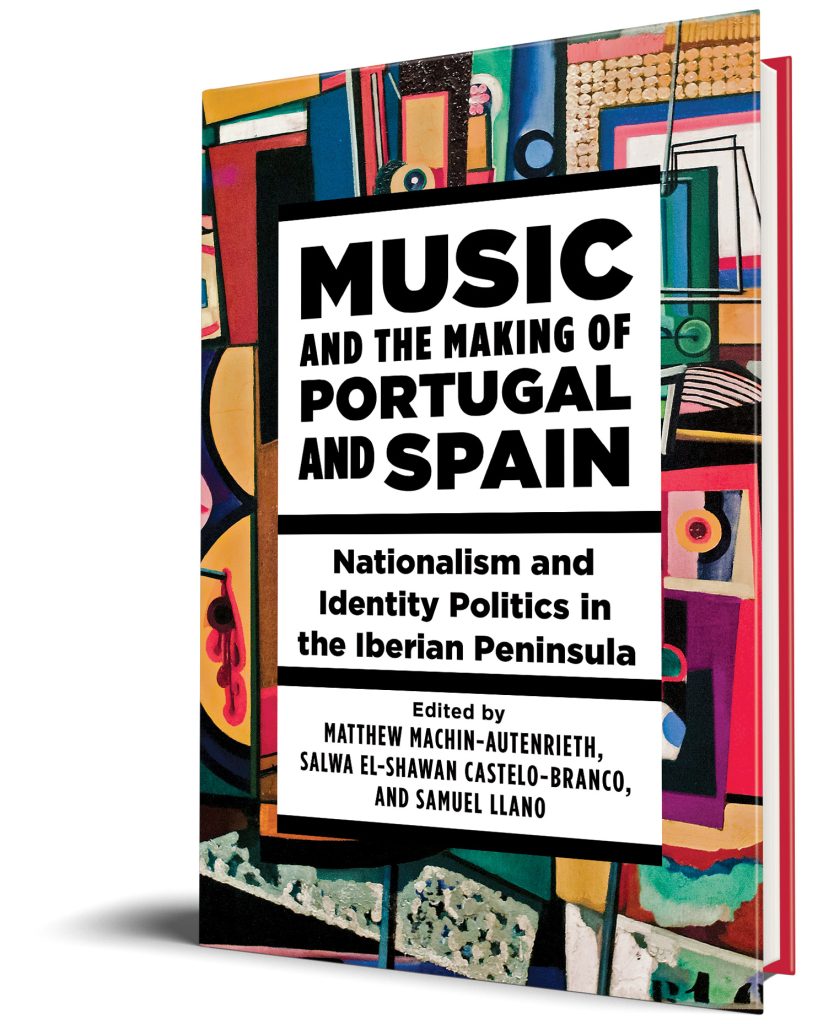The editors of Music and the Making of Portugal and Spain: Nationalism and Identity Politics in the Iberian Peninsula, answers questions on their new book.
Q: Why did you decide to write this book?
The book emerged from a symposium that was run as part of Matthew’s Leverhulme Early Career fellowship, a research grant hosted by the University of Cambridge. Entitled “Music, Nation, and Region in the Iberian Peninsula: (Re)Sounding History, Identity, and Heritage” and taking place in June 2017, the event brought together a host of scholars at different career levels to discuss their research around music, nationalism and heritage in the Iberian Peninsula. The conference organisers, who ended up becoming the editors of this book, realized that there was so much dialogue and overlap between scholars working on Portugal and Spain around issues to do with nationalism. It was also clear from existing work that there had not been a book-length volume to approach the topic from a comparative perspective. Moreover, there is a wealth of scholarship available in Portuguese and Spanish, but very little of this gets into English. Thus we wanted this valuable knowledge to be made available in English, as well as providing an international platform for emerging and established Portuguese and Spanish scholars.
Q: What is the most interesting discovery you made while researching and writing your book?
There are some strong connections and comparisons between how music and nationalism have interacted in Portugal and Spain that have emerged from this book. We knew that the histories of these two countries are so closely tied together, but it was surprising to realize that this makes it nearly impossible to analyze the intersection between music and nationalism in any meaningful way without considering the Iberian Peninsula as a whole. We also came to the realization that, despite the many links tying these two countries together, we must recognize their differences, which are not just linguistic or cultural. Both countries have experienced long dictatorships, but how they deal with questions of memory in the wake of these traumatic experiences, and the role that music has played, although similar, presents some notable differences, partly because of the role that memory has played in the building of Portuguese and Spanish societies and in the political field. In the democratic era, both countries have also been engaged in safeguarding intangible cultural heritage and are “state-parties” to UNESCO’s 2003 Convention for the Safeguarding of Intangible Cultural Heritage. Here as well there are similarities and differences in the state heritage regimes that were established and in the impact of the inscription of cultural practices on UNESCO’s Representative List of Intangible Cultural Heritage.
Q: What myths do you hope your book will dispel or what do you hope your book will help readers unlearn?
One key myth to bust is that, when it comes to music, Portugal is all about fado and Spain is all about flamenco. Even though these traditions are, of course, important and do feature in some way in the book, the Iberian Peninsula is home to a wealth of folk, traditional and popular music genres which deserve public attention. Sonically and musically the Iberian Peninsula is immensely diverse. It is also peripheralized in much scholarship and so another myth we wanted to bust is that Portugal and Spain have little, musically, to tell us about the complex relationship between music and nationalism. This book, we hope, will bring new insights and perspectives to work that has traditionally focused on central Europe.
Q: Which part of the publishing process did you find the most interesting?
The most interesting part of the project was working closely with a range of talented and knowledgeable scholars from across a range of different career levels. All of the contributing authors are Portuguese and Spanish, and many have never had the opportunity to publish in English. And so it was a challenging, yet rewarding experience working with these authors to bring their amazing research to the printed page and to an international audience. Planning the volume and co-writing the introduction among the co-editors taught us to discover the potential of our different approaches to a very similar field of study.
Q: What is your advice to scholars/authors who want to take on a similar project?
Edited volumes are a lot of work and take a loooong time. The first bit of advice, then, is not to underestimate how lengthy the process of putting together an edited book is – from the initial conception, to soliciting authors, to editing initial drafts, going through the review process, editing again and again (and again!). Having a team of editors can be a good idea (there are three of us) with one person managing the project, so that the work can be evenly spread out. If you are an early career scholar, then it can also be useful to work with more experienced scholars, where possible, in editing the volume.
Matthew Machin-Autenrieth is a lecturer in ethnomusicology at the University of Aberdeen. He is the author of Flamenco, Regionalism and Musical Heritage in Southern Spain.
Salwa el-Shawan Castelo-Branco is a professor emerita at the Nova University of Lisbon, former director of the Instituto de Etnomusicologia, Centro de Estudos em Música e Dança at the Universidade Nova de Lisboa, Portugal, and former president of the International Council for Traditional Music. She is the coauthor of Portugal and Spain: Experiencing Music, Expressing Culture.
Samuel Llano is a senior lecturer in Spanish cultural studies at the University of Manchester. He is the author of Whose Spain: Negotiating “Spanish” Music in Paris; and Discordant Notes: Marginality and Social Control in Madrid.

